Find Help
More Items From Ergsy search
-

Living with Foetal Alcohol Spectrum Disorder (FASD), a mum’s journey (full version)
Relevance: 100%
-

FASD Foetal alcohol
Relevance: 60%
-

What is the autism spectrum?
Relevance: 32%
-

Can alcohol worsen sleep apnea?
Relevance: 22%
-

What is alcohol poisoning?
Relevance: 22%
-

Alcohol Awarerness Week
Relevance: 22%
-

5 Facts about Alcohol and Britain
Relevance: 21%
-

Is it possible for alcohol alone to cause similar symptoms?
Relevance: 21%
-

BSL - Symptoms of panic disorder
Relevance: 21%
-
Is it possible to recover from an eating disorder?
Relevance: 21%
-
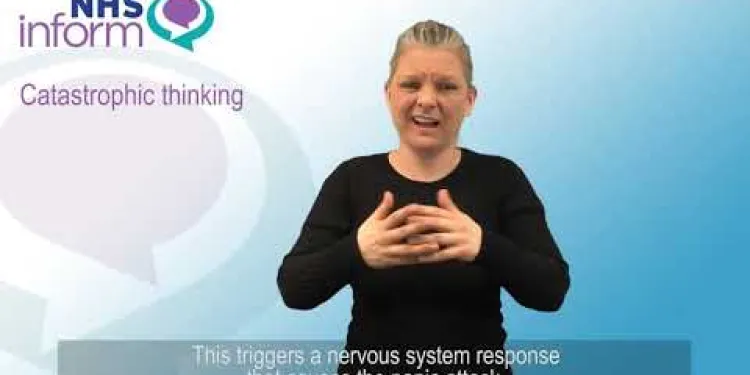
BSL - Causes of panic disorder
Relevance: 21%
-
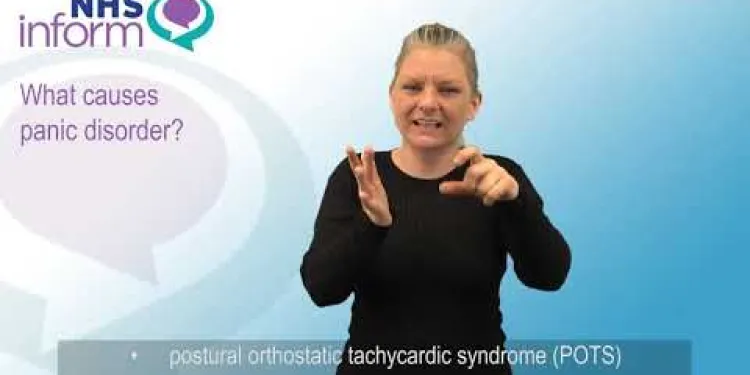
BSL - Introduction to panic disorder
Relevance: 20%
-
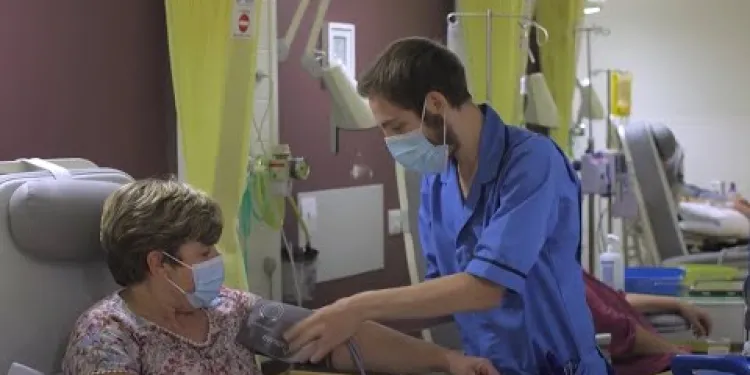
Chemotherapy - the patient journey
Relevance: 20%
-

What is safe alcohol consumption in Adults?
Relevance: 20%
-

Should I avoid alcohol during a heatwave?
Relevance: 19%
-
Can eating disorders be treated?
Relevance: 19%
-
Are eating disorders only about food?
Relevance: 19%
-

Can alcohol be consumed while taking Wegovy?
Relevance: 19%
-

Bipolar disorder: Rod's story | NHS
Relevance: 19%
-
How can someone help a loved one with an eating disorder?
Relevance: 18%
-
What is an Eating Disorder?
Relevance: 18%
-
What is an eating disorder?
Relevance: 18%
-

Eating disorders: treatment
Relevance: 18%
-

Living with Bipolar Disorder
Relevance: 18%
-
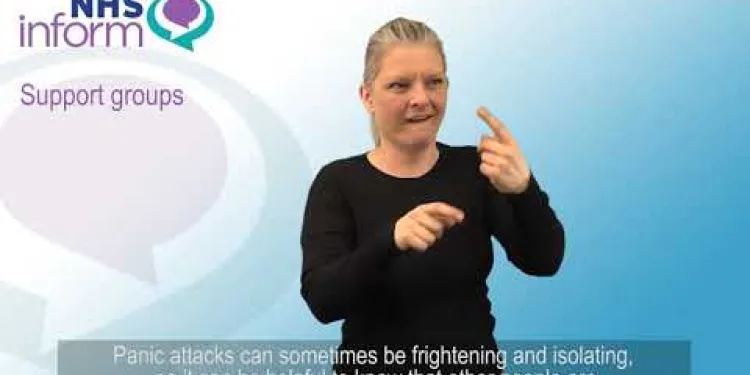
BSL - Treatment of panic disorder
Relevance: 18%
-

How does alcohol tolerance relate to binge drinking?
Relevance: 18%
-

BSL - Panic disorder: things you can do to help yourself
Relevance: 18%
-

Why is methanol sometimes found in illegally produced alcohol?
Relevance: 18%
-
What is the role of therapy in treating eating disorders?
Relevance: 18%
-

What is Alcohol Rehab?
Relevance: 18%
-

Short Films About Mental Health - Personality Disorders
Relevance: 18%
-

Steve Green tells his story on living with a hoarding disorder
Relevance: 18%
-

A journey to hip surgery
Relevance: 18%
-
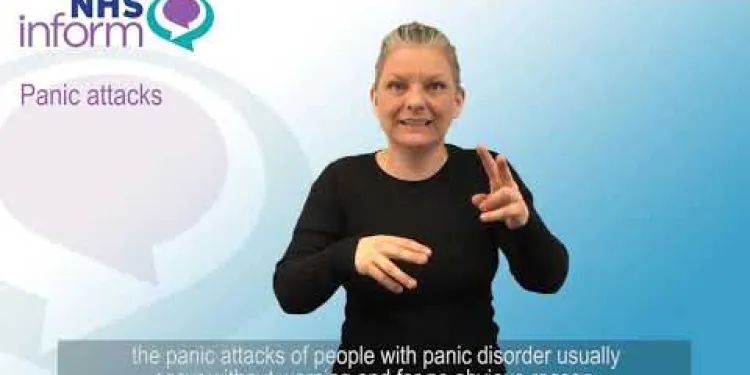
BSL - Diagnosis of panic disorder
Relevance: 18%
-
Are there preventative measures for eating disorders?
Relevance: 17%
-
How are eating disorders diagnosed?
Relevance: 17%
-

The treatment approach for an eating disorder
Relevance: 17%
-
How can someone seek help for an eating disorder?
Relevance: 17%
-

Why is there concern about paracetamol and autism?
Relevance: 17%
-

What role does alcohol consumption play in bowel cancer risk?
Relevance: 17%
Living with Foetal Alcohol Spectrum Disorder (FASD): A Mum's Journey
Understanding FASD
Foetal Alcohol Spectrum Disorder (FASD) is a lifelong condition caused by prenatal alcohol exposure. In the UK, raising awareness about FASD is crucial as it affects many families. The journey of a mother raising a child with FASD is filled with unique challenges and triumphs, highlighting the importance of early diagnosis, support, and education.
The Diagnosis
For many mums, discovering that their child has FASD is a turning point. Early symptoms may include developmental delays, behavioural issues, and difficulties with learning and memory. In the UK, obtaining a diagnosis often involves consulting with healthcare professionals, such as paediatricians or specialist FASD clinics. Early diagnosis is key to accessing the right support and interventions.
Day-to-Day Challenges
Living with a child who has FASD involves managing a variety of symptoms that can change over time. These might include hyperactivity, poor coordination, and social challenges. Routine daily activities like getting ready for school, staying organised, and managing emotions often require additional time, patience, and adaptive strategies.
Finding Support
Support networks are essential for families dealing with FASD. In the UK, organisations such as NOFAS-UK and FASD Network UK provide resources, advocacy, and community connections. Support groups, both in-person and online, offer a platform for sharing experiences, advice, and encouragement. Engaging with schools and healthcare providers to create an informed and inclusive environment is also critical.
Celebrating Achievements
Despite the challenges, it is important to celebrate the achievements and milestones, no matter how small they may seem. Progress can be slow, but with persistence and a positive approach, children with FASD can learn and grow in meaningful ways. Recognising their strengths and offering consistent praise can help build self-esteem and resilience.
A Message to Other Mums
This journey can be demanding, but you are not alone. Reach out for help, take care of your own wellbeing, and celebrate each step forward. The strength and love you provide are the foundation for your child’s growth and happiness. Together, we can build a more informed and supportive community for everyone affected by FASD in the UK.
Living with Foetal Alcohol Spectrum Disorder (FASD): A Mum's Journey
Understanding FASD
FASD happens when a baby is exposed to alcohol before they are born. It is a condition that lasts forever. In the UK, many families have children with FASD. It is important to know about FASD to help these families. Mums who have children with FASD face special challenges. Early diagnosis, support, and learning help a lot.
The Diagnosis
Finding out your child has FASD is a big moment for many mums. Early signs include learning and memory issues, and sometimes trouble with behaviour. In the UK, to know if a child has FASD, parents talk to doctors like paediatricians or visit special clinics. Knowing early helps get the right help and tools.
Day-to-Day Challenges
Having a child with FASD means dealing with different issues every day. These can include being very active, having trouble with balance, and difficulty making friends. Simple tasks like getting ready for school can take more time and patience. Using new ways to help and keep track can make things easier.
Finding Support
It is important to have support from others when dealing with FASD. In the UK, groups like NOFAS-UK and FASD Network UK help families. They provide resources and a chance to meet others with similar experiences. Support groups, online or in person, are great for sharing advice and encouragement. Working with schools and doctors can create a caring environment for the child.
Celebrating Achievements
Even though there are challenges, it is important to celebrate every achievement. Small successes are important. Children with FASD can learn and grow with love and support. Recognizing their strengths and praising them helps boost their confidence and strength.
A Message to Other Mums
This journey can be tough, but you are not alone. Ask for help, take care of yourself, and celebrate each step forward. The love and strength you give are very important for your child's happiness and growth. Together, we can create a caring community for everyone affected by FASD in the UK.
Frequently Asked Questions
What is Fetal Alcohol Spectrum Disorder (FASD)?
Fetal Alcohol Spectrum Disorder (FASD) is an umbrella term for a range of effects that can occur in an individual whose mother consumed alcohol during pregnancy. These effects can include physical, behavioural, and learning difficulties.
How does alcohol consumption affect a developing fetus?
Alcohol consumption during pregnancy can interfere with the development of the brain and other organs in the fetus. This can result in a variety of lifelong physical, mental, and behavioural problems collectively known as FASD.
What are the signs and symptoms of FASD?
Signs and symptoms of FASD can include poor growth, distinct facial features, intellectual disabilities, behavioural problems, and issues with learning and memory.
How is FASD diagnosed?
FASD is diagnosed through a comprehensive evaluation that includes a physical examination, assessments of cognitive and behavioural function, and a detailed history of prenatal alcohol exposure.
Can FASD be cured?
There is no cure for FASD. However, early intervention and supportive therapies can greatly improve outcomes for individuals with FASD.
What types of interventions help children with FASD?
Interventions can include special education services, speech and occupational therapies, behavioural therapies, and family support services.
What challenges do parents face when caring for a child with FASD?
Parents may face challenges such as managing behavioural issues, navigating educational and healthcare systems, and dealing with the social stigma associated with FASD. Support from professionals and other families going through similar experiences can be crucial.
How can schools support students with FASD?
Schools can provide tailored educational programs, use consistent routines, offer small class sizes, and involve special education professionals to support the unique learning needs of students with FASD.
What role do healthcare providers play in managing FASD?
Healthcare providers can help with early diagnosis, provide referrals to specialists, create management plans, and offer ongoing support to families affected by FASD.
Is it safe to drink any amount of alcohol during pregnancy?
No amount of alcohol is considered safe during pregnancy. The safest option is to abstain from alcohol entirely while pregnant.
Can fathers’ alcohol consumption affect FASD?
While FASD is directly caused by maternal alcohol consumption during pregnancy, paternal drinking behaviour can still impact the overall environment and support system, but it does not cause FASD.
What support is available for families in the UK dealing with FASD?
In the UK, families can access support through NHS services, local health authorities, special education programs, and FASD-specific support organisations like NOFAS-UK.
How can communities raise awareness about FASD?
Communities can raise awareness through public health campaigns, educational workshops, advocacy events, and by supporting FASD charities and initiatives.
Can adults be diagnosed with FASD?
Yes, adults can be diagnosed with FASD. If FASD was not identified in childhood, adults with FASD can still benefit from a diagnosis and receive appropriate support and interventions.
Are there any long-term outcomes for individuals with FASD?
Long-term outcomes can vary. With appropriate support and interventions, individuals with FASD can lead productive lives. However, many will face ongoing challenges related to learning, behaviour, and social interactions.
What is Fetal Alcohol Spectrum Disorder (FASD)?
Fetal Alcohol Spectrum Disorder (FASD) is a condition. It happens when a baby is in their mother's tummy. If the mother drinks alcohol, it can make the baby sick. This can make it hard for the child to learn and grow.
Here are some ways to help:
- Parents and teachers can use pictures and simple words to explain things.
- Games and songs can make learning fun and easy.
- Kids with FASD may need extra time to understand new things.
Fetal Alcohol Spectrum Disorder (FASD) is a name for different problems a person can have if their mom drank alcohol when she was pregnant. This can cause problems with the body, behavior, and learning.
How Does Alcohol Affect an Unborn Baby?
Drinking alcohol can hurt a baby growing inside a mommy's tummy. It's important for mommies to not drink alcohol when they are going to have a baby.
Alcohol can make it hard for the baby to grow in a healthy way. It can affect how the baby's brain and body develop. Babies can have problems when they are born because of alcohol.
It helps for mommies to talk to their doctor about safe choices during pregnancy.
Using pictures or stories can help understand this better. Also, apps that read text out loud can be useful.
Drinking alcohol when you have a baby growing inside you can hurt the baby’s brain and body. This can cause problems that last a long time called FASD. These problems can affect how the child thinks, feels, and acts.
How can you tell if someone has FASD?
FASD means Fetal Alcohol Spectrum Disorder. Here are some signs that a person might have FASD:
- They may find it hard to learn new things.
- They might have trouble with talking and understanding.
- They could be smaller than other kids their age.
- They might have problems with hearing or seeing.
- They may find it hard to pay attention or sit still.
- They might get frustrated or upset easily.
- They could have a hard time making friends.
If you think someone might have FASD, talking to a doctor can help. They can give advice and support.
Signs of FASD can be:
- Not growing well.
- Faces may look different.
- Learning and thinking can be hard.
- Problems with behavior, like acting out.
- Trouble remembering things.
Tools that can help:
- Pictures to show what words mean.
- Games to make learning fun.
- Support from a helper or teacher.
How do doctors know if someone has FASD?
FASD stands for Fetal Alcohol Spectrum Disorder. It is a condition that can happen if a baby is exposed to alcohol before birth.
To find out if someone has FASD, doctors look at:
- How the person looks and grows
- How the person learns and behaves
- If the person had a mother who drank alcohol while pregnant
Doctors may need help from other experts, like psychologists or speech therapists, to understand all of a person's needs. It's important for the person to get the right support and care.
If you think someone has FASD, talk to a doctor. They can do tests and talk with you about what to do next.
There are also techniques to help learn and understand better, like breaking tasks into smaller steps, using pictures, and taking breaks.
Doctors look for FASD by doing a big check-up. This includes a physical check-up, looking at how the child thinks and acts, and learning about the mother’s alcohol use during pregnancy.
Can FASD be cured?
FASD stands for Fetal Alcohol Spectrum Disorder. This happens when a baby is in the mom's tummy and the mom drinks alcohol. FASD can make it hard for kids to learn and behave.
FASD cannot be cured, which means it does not go away. But there are ways to help children with FASD. They can have special classes or work with teachers who understand them. Parents and caregivers can learn new ways to care for their child. Talking to doctors and other helpers can make things easier too.
If you have FASD or know someone who does, it is important to ask for help. There are people and tools to support you.
There is no cure for FASD (Fetal Alcohol Spectrum Disorders). But starting treatment and getting help early can make life much better for people with FASD.
What can help children with FASD?
Children with FASD (Fetal Alcohol Spectrum Disorder) sometimes need extra help to learn and play.
Here are some things that can help:
- Routines: Doing the same things every day can make children feel safe.
- Quiet Space: A calm place can help when things get too noisy or busy.
- Simple Instructions: Giving one small step at a time helps children understand better.
- Visual Aids: Pictures and charts can help children see and remember instructions.
- Supportive Learning: Tools like timers or checklists can help kids stay on track.
Talking to a teacher or doctor can also give more ideas to help children learn and feel good.
There are different ways to help. These can include:
- Special classes at school
- Help with talking
- Help with doing daily activities
- Ways to help with behavior
- Support for families
These can make things easier.
What problems do parents have when looking after a child with FASD?
FASD is a health condition that affects how a child learns and behaves. Here are some problems parents might face:
- Learning: Children with FASD can find schoolwork hard. Parents might need to help with homework or talk to teachers.
- Behavior: Children with FASD might have trouble listening or following rules. Parents might need to remind them often.
- Feelings: Children with FASD can feel sad or upset easily. Parents might need to comfort them and talk about their feelings.
- Routine: Having a regular routine can help children with FASD. Parents might need to make a plan for the day and stick to it.
- Support: Parents can ask for help from doctors, teachers, or support groups.
Tools like picture charts, timers, and reward systems can help. Parents can also talk to other families going through the same thing for advice and support.
Parents can have a hard time with things like:
- Handling behavior problems
- Understanding school and doctor systems
- Facing social judgment about FASD
Getting help from experts and talking to other families with the same experiences can really help.
How can schools help students with FASD?
FASD means Fetal Alcohol Spectrum Disorder. Children with FASD may need extra help to learn.
Here are some ways schools can help:
- Be patient and kind.
- Explain things slowly and clearly.
- Use pictures or drawings to help explain ideas.
- Break tasks into small, easy steps.
- Give lots of praise and encouragement.
- Use tools like timers to help with focus.
Schools can talk to parents and experts to find the best ways to help each student.
Schools can help kids with FASD learn by doing a few things. They can make special learning plans just for them. They should have routines that don't change. Classes can be smaller so kids get more attention. And schools can ask teachers who know a lot about special learning needs to help out.
What do doctors and nurses do to help people with FASD?
Doctors and nurses help people with FASD feel better. They check how you are doing and give you medicine if you need it. They also talk to your family to help you at home.
If you have FASD, it is good to see a doctor or nurse. They can help you stay healthy and happy.
Here are some ways to make things easier:
- Bring a friend or family member to your appointments.
- Ask questions if you don’t understand something.
- Write down what the doctor or nurse says, or ask them to write it for you.
Doctors and nurses can help find out if someone has FASD early. They can send you to special doctors, make plans to help, and give support to families who have FASD.
Is it okay to drink alcohol when you are pregnant?
No, it is not safe to drink any alcohol when you are pregnant.
Alcohol can harm your baby. It is best to drink water, milk, or juice instead.
If you need help to stop drinking, talk to your doctor or a helper. They can give you tips and support.
It is not safe to drink alcohol when you are pregnant. The best choice is to not drink any alcohol at all while you are having a baby.
Can what dads drink affect FASD?
FASD stands for Fetal Alcohol Spectrum Disorders. It's a condition that some babies get before they are born, if their parents drink alcohol during pregnancy.
Doctors are learning more about how a dad's drinking might affect a baby too. It's important for both moms and dads to be careful about drinking alcohol when they want to have a baby.
Using simple tools like pictures or videos can help explain this better. Talking with a doctor or a nurse can also be helpful.
FASD happens because a mother drinks alcohol when she is pregnant. But if a father drinks, it can still affect the family and support system. However, it does not cause FASD.
Help for Families in the UK with FASD
Families in the UK can get help if someone in the family has FASD. FASD stands for Fetal Alcohol Spectrum Disorder.
You can talk to doctors and nurses for advice. They can tell you how to help your child.
There are also groups where you can meet other families with FASD. You can share your feelings and ideas with them.
Some schools have special teachers to help children with FASD learn.
Using pictures and charts can also make things easier to understand for children with FASD.
In the UK, families can get help from the NHS, their local health services, special education programs, and FASD help groups like NOFAS-UK.
How can communities tell people about FASD?
Here are some simple ways for communities to help people understand FASD:
- Host community events and talks to explain what FASD is.
- Make posters with easy words and pictures about FASD.
- Share stories from families living with FASD.
- Work with schools to help children learn about FASD.
- Use videos with captions to show information about FASD.
- Provide easy-to-read guides about FASD for everyone.
Some useful tools and techniques to help tell people about FASD are:
- Create simple quizzes or games to make learning fun.
- Use social media to reach more people.
- Partner with local health groups for support.
- Hold workshops where people can ask questions.
Communities can help by talking about it with others. They can have health talks, plan learning events, and support groups that help. They can also help charities that look after people with FASD.
Can doctors find out if grown-ups have FASD?
Yes, doctors can check if grown-ups have FASD.
If you think you might have FASD, you can talk to a doctor.
It can help to bring a friend or family member with you.
You can write down your questions to bring to the doctor.
Try using pictures or drawings to explain how you feel.
Talking to someone you trust can also help you understand FASD better.
Yes, adults can find out if they have FASD. Even if they didn't know when they were kids, adults can still learn they have FASD and get help.
What happens in the long run for people with FASD?
People with FASD might need help as they grow up. This help can make life better for them.
Here are some things that can help:
- Going to a special doctor
- Doing fun activities
- Getting support at school
- Joining a support group
It's important for everyone to work together to help people with FASD.
The future can be different for each person with FASD. With the right help and support, people with FASD can have good lives. But many will still have problems with learning, behavior, and making friends.
Here are some ways to help:
- Ask for help from teachers or tutors for learning.
- Use simple step-by-step instructions for tasks.
- Practice social skills with role-playing games.
- Use tools like calendars and checklists to stay organized.
Useful Links
This website offers general information and is not a substitute for professional advice.
Always seek guidance from qualified professionals.
If you have any medical concerns or need urgent help, contact a healthcare professional or emergency services immediately.
Some of this content was generated with AI assistance. We’ve done our best to keep it accurate, helpful, and human-friendly.
- Ergsy carfully checks the information in the videos we provide here.
- Videos shown by Youtube after a video has completed, have NOT been reviewed by ERGSY.
- To view, click the arrow in centre of video.
- Most of the videos you find here will have subtitles and/or closed captions available.
- You may need to turn these on, and choose your preferred language.
- Go to the video you'd like to watch.
- If closed captions (CC) are available, settings will be visible on the bottom right of the video player.
- To turn on Captions, click settings .
- To turn off Captions, click settings again.
More Items From Ergsy search
-

Living with Foetal Alcohol Spectrum Disorder (FASD), a mum’s journey (full version)
Relevance: 100%
-

FASD Foetal alcohol
Relevance: 60%
-

What is the autism spectrum?
Relevance: 32%
-

Can alcohol worsen sleep apnea?
Relevance: 22%
-

What is alcohol poisoning?
Relevance: 22%
-

Alcohol Awarerness Week
Relevance: 22%
-

5 Facts about Alcohol and Britain
Relevance: 21%
-

Is it possible for alcohol alone to cause similar symptoms?
Relevance: 21%
-

BSL - Symptoms of panic disorder
Relevance: 21%
-
Is it possible to recover from an eating disorder?
Relevance: 21%
-

BSL - Causes of panic disorder
Relevance: 21%
-

BSL - Introduction to panic disorder
Relevance: 20%
-

Chemotherapy - the patient journey
Relevance: 20%
-

What is safe alcohol consumption in Adults?
Relevance: 20%
-

Should I avoid alcohol during a heatwave?
Relevance: 19%
-
Can eating disorders be treated?
Relevance: 19%
-
Are eating disorders only about food?
Relevance: 19%
-

Can alcohol be consumed while taking Wegovy?
Relevance: 19%
-

Bipolar disorder: Rod's story | NHS
Relevance: 19%
-
How can someone help a loved one with an eating disorder?
Relevance: 18%
-
What is an Eating Disorder?
Relevance: 18%
-
What is an eating disorder?
Relevance: 18%
-

Eating disorders: treatment
Relevance: 18%
-

Living with Bipolar Disorder
Relevance: 18%
-

BSL - Treatment of panic disorder
Relevance: 18%
-

How does alcohol tolerance relate to binge drinking?
Relevance: 18%
-

BSL - Panic disorder: things you can do to help yourself
Relevance: 18%
-

Why is methanol sometimes found in illegally produced alcohol?
Relevance: 18%
-
What is the role of therapy in treating eating disorders?
Relevance: 18%
-

What is Alcohol Rehab?
Relevance: 18%
-

Short Films About Mental Health - Personality Disorders
Relevance: 18%
-

Steve Green tells his story on living with a hoarding disorder
Relevance: 18%
-

A journey to hip surgery
Relevance: 18%
-

BSL - Diagnosis of panic disorder
Relevance: 18%
-
Are there preventative measures for eating disorders?
Relevance: 17%
-
How are eating disorders diagnosed?
Relevance: 17%
-

The treatment approach for an eating disorder
Relevance: 17%
-
How can someone seek help for an eating disorder?
Relevance: 17%
-

Why is there concern about paracetamol and autism?
Relevance: 17%
-

What role does alcohol consumption play in bowel cancer risk?
Relevance: 17%


